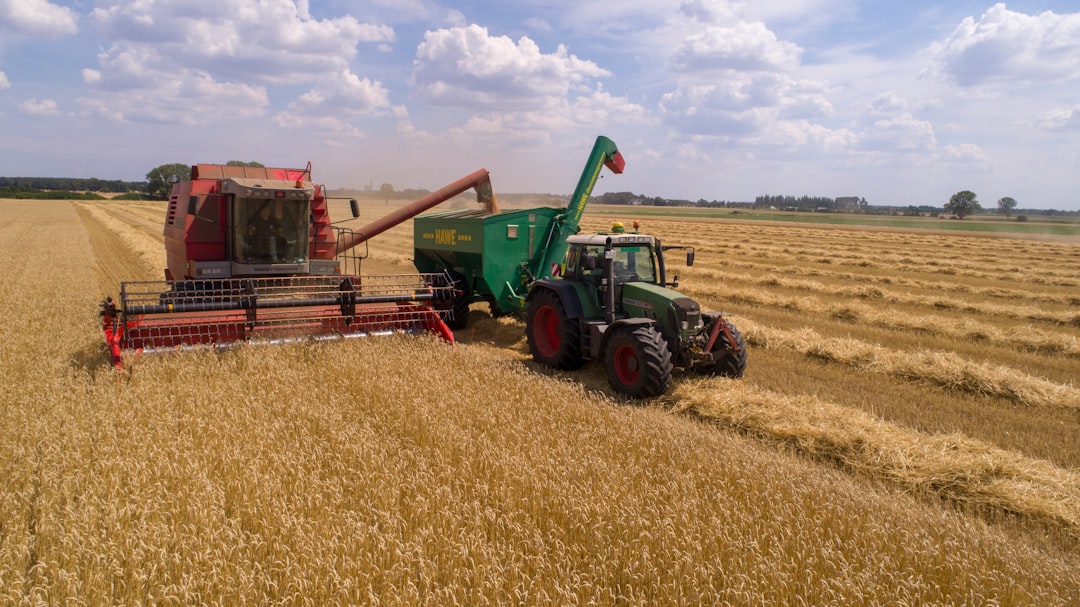Agricultural/Horticultural Field Representative Māngai Taiao Ahuwhenua
Agricultural/horticultural field representatives sell products such as farm equipment, and advise clients on crop and livestock management.
Agricultural/horticultural field representatives may do some or all of the following:
- advise clients about product usage, pasture, and crop and livestock management
- negotiate the sale of agricultural/horticultural products and services
- buy and sell seeds and grains on farms.
Physical Requirements
Agricultural/horticultural field representatives need to be fit and healthy, as they may walk around farms for inspections.
Useful Experience
Useful experience for agricultural/horticultural field representatives includes:
- merchandise sales for a retail servicing company
- general farm work, including farm management
- work on agricultural or horticultural crop farms.
Personal Qualities
Agricultural/horticultural field representatives need to:
- have good communication skills, including the ability to relate to a wide range of people
- be able to build and maintain relationships
- be hard-working, friendly, patient and able to inspire confidence
- be good negotiators
- be accurate and able to use good judgement
- have good planning, organisational and problem-solving skills
- have record-keeping skills.
Skills
Agricultural/horticultural field representatives need to have knowledge of:
- animal handling
- stock breeds, stock health and nutrition
- soil types and fertility
- pasture and crop species and varieties
- environmental impacts
- performance of products such as farm equipment and agrichemicals
- market values and trends, profitability and how climatic conditions affect market prices
- how to sell agricultural products and services
- legislative requirements.
Self-employed agricultural/horticultural field representatives running their own business also require small business skills.
Conditions
Agricultural/horticultural field representatives:
- usually work a 40-hour week but may work longer and irregular hours in summer and autumn during harvest seasons
- work on farms and in offices
- work outdoors in all weather conditions
- travel frequently between workplaces.
Subject Recommendations
There are no specific secondary education requirements to become an agricultural/horticultural field representative. However, agricultural and horticultural science, agribusiness, biology, business studies, maths and English are useful.
Related Courses
Agricultural/Horticultural Field Representatives can earn around $55K-$90K per year.
Pay for agricultural/horticultural field representatives varies depending on their position in the company, ability, experience, and incentives or profit-sharing arrangements.
- Cadet or trainee agricultural/horticultural field representatives usually start on about $55,000 a year.
- Agricultural/horticultural field representatives with two to three years' experience usually earn between $70,000 and $90,000.
- Agricultural/horticultural field representatives with more than three years' experience can earn from $90,000 to $120,000.
Agricultural/horticultural field representatives with over three years' experience sometimes earn a base salary and commission.
Sources: PGG Wrightson Seeds Limited, 2019; and PGG Wrightson, 2019.
Agricultural/horticultural field representatives may progress to work in territory sales management or move into senior management roles.
Agricultural/horticultural field representatives may specialise in working within a particular sector of the agricultural industry such as sheep, beef and dairy, or with seed and grain production.
Agricultural/horticultural field representatives may also specialise in working within a particular sector of the horticultural industry such as fruit, nut or vegetable crop production.
Years Of Training
There are no specific requirements to become an agricultural/horticultural field representative. However, a diploma or degree in agriculture, horticulture, commerce or farm management is recommended. Knowledge of farm management and farming techniques is an advantage.
A Growsafe Agrichemical Supplier Certificate may be useful for agricultural/horticultural field representatives involved in the supply of agrichemicals to farmers, and a New Zealand Certificate in Rural Servicing (Level 4) may also be useful. Both can be completed while working on the job.
A driver's licence is usually required.

 Tawa College
Tawa College